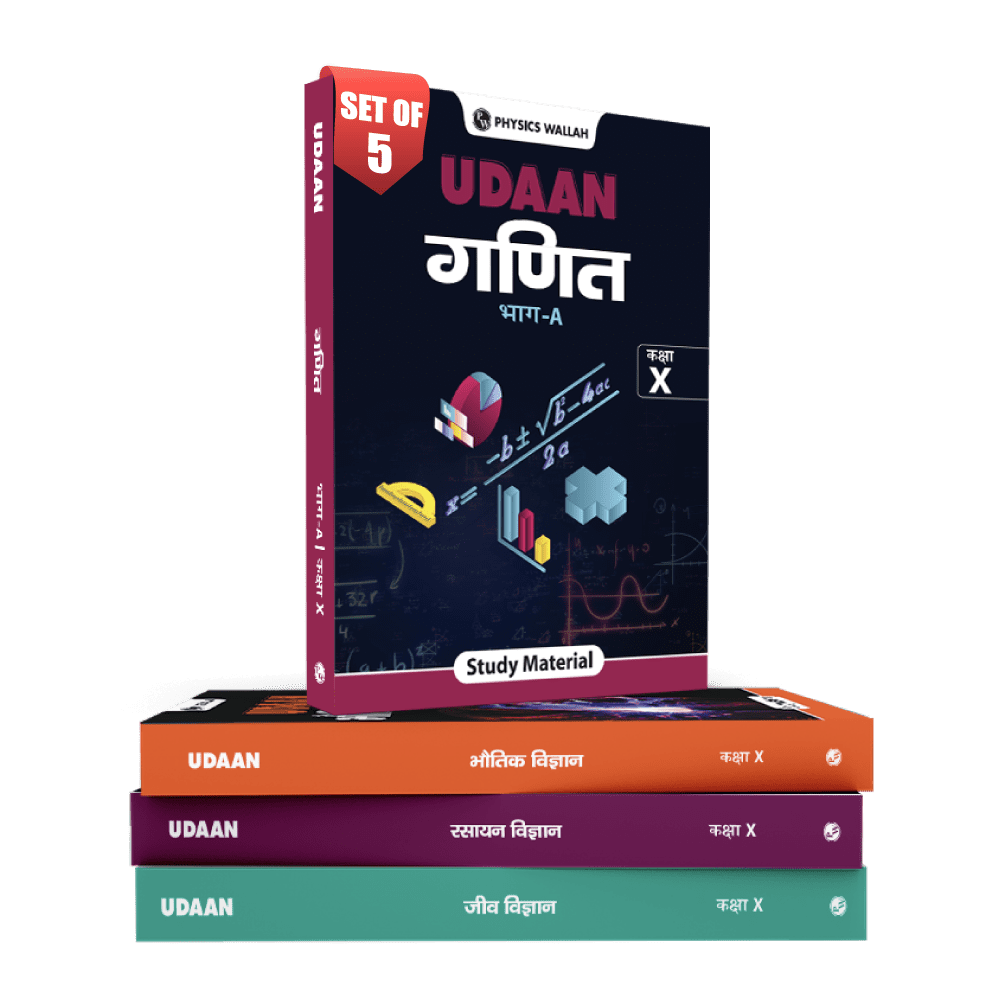CBSE Maths Complete Syllabus For Class 10th 2024-25

CBSE Maths Syllabus 2025:- The CBSE has announced Class 10 and 12 results for the year 2024. Notably, the highest number that students have achieved is in Mathematics for Class 10. Over 11,000 Class 10 students secured a perfect score of 100 in Mathematics. In Mathematics, 11,253 students scored full marks in the standard category, followed by Sanskrit and Artificial Intelligence, with 6,700 and 6,269 candidates achieving a perfect 100, respectively.
Thus, students who are aiming to get good scores in the CBSE 2025 exams should prioritise their focus on mathematics, as it is considered one of the highest-scoring subjects for class 10th. The CBSE Maths Syllabus 2025 is crucial for getting good grades and building a solid academic base. Get the detailed CBSE Maths Syllabus 2025 below.
CBSE Maths Complete Syllabus For Class 10th 2024-25
CBSE Class 10 Maths Exam Pattern 2025
As Maths has been the scoring subject for CBSE class 10 boards 2024 here is the expected CBSE Class 10 Maths Exam Pattern 2025:-
|
Sections |
No of Questions |
Total Marks |
Type of Questions |
|
Section A |
20 |
20 X 1 = 20 |
MCQs |
|
Section B |
5 |
5 X 2 = 10 |
Very Short Answer Questions |
|
Section C |
6 |
6 X 3 = 18 |
Short Answer Questions |
|
Section D |
4 |
4 X 5 = 20 |
Long Answer Questions |
|
Section E |
3 |
3 X 4 = 12 |
Long Answer Questions |
List of Important Chapters for Class 10 Maths Board Exam 2025
The chapters listed below carry the most weight in the marking scheme. These chapters are likely to have fixed questions on the exam. Therefore, students should thoroughly study each chapter and solve all related questions.
-
Number Systems: Real Numbers
-
Prime Factorization Method: Understand how to break down numbers into their prime factors, a fundamental concept in number theory.
-
Irrational Numbers: Study properties and examples of irrational numbers, which cannot be expressed as a simple fraction.
-
Algebra: Polynomials
-
Relationship Between Zeroes and Coefficients: Learn how the zeroes (roots) of a polynomial relate to its coefficients through specific formulas and properties.
-
Pair of Linear Equations in Two Variables
-
Solving Using Substitution Method: Practice solving pairs of linear equations by substituting one equation into the other.
-
Solving Using Elimination Method: Master solving pairs of equations by eliminating one variable to solve for the other.
-
Quadratic Equations
-
Solution Using Factorization Method: Learn to solve quadratic equations by breaking them down into simpler binomial factors.
-
Arithmetic Progressions
-
Entire Chapter: Focus on understanding sequences, the formula for the nth term, and the sum of the first n terms, with a variety of practice problems.
-
Coordinate Geometry: Coordinate Geometry
-
Distance Formula: Calculate the distance between two points in a plane using their coordinates.
-
Section Formula: Understand how to find the coordinates of a point dividing a line segment in a given ratio.
-
Geometry: Triangles
-
Similarity of Triangles/Theorems: Study and prove various theorems related to the similarity of triangles, which are foundational for further geometric concepts.
-
Circles
-
Entire Chapter: Focus on theorems related to circles, especially those involving tangents, and practice solving related problems.
-
Trigonometry: Introduction to Trigonometry
-
Entire Chapter: Grasp the basics of trigonometric ratios, their relationships, and applications, which form the foundation for more advanced topics.
-
Some Applications of Trigonometry
-
Heights and Distances: Apply trigonometric ratios to solve practical problems involving heights and distances.
-
Mensuration: Areas Related to Circles
-
Entire Chapter: Learn formulas for areas of circles, sectors, and segments, and practice a variety of problems to reinforce understanding.
-
Surface Areas and Volumes:
-
Calculation of Curved Surface Area and Total Surface Area of Combination of Solids: Study and calculate the surface areas of composite shapes.
-
Calculation of Volume of Combination of Solids: Learn to compute the volumes of complex shapes formed by combining simpler solids like cuboids, cones, cylinders, spheres, and hemispheres.
-
Statistics and Probability: Statistics
-
Calculation of Mean by Assumed Mean Method: Understand and apply the assumed mean method for finding the average.
-
Calculation of Mean by Step-Deviation Method: Use the step-deviation method to simplify mean calculations.
-
Calculation of Mode: Learn to find the mode, or most frequent value, in a data set.
-
Calculation of Median Using Cumulative Frequency: Master finding the median using cumulative frequency distributions.
-
Probability:
-
Entire Chapter: Develop a solid understanding of probability concepts, and practice problems to apply these concepts effectively.
Preparation Tips for CBSE Class 10 Maths
Understand the Syllabus and Exam Pattern
-
Familiarise Yourself: Start by thoroughly understanding the CBSE Class 10 Maths syllabus. Know the weightage of each unit and chapter.
-
Exam Pattern: Be aware of the exam pattern, including the types of questions (MCQs, short answer, long answer), marks distribution, and time allocation.
2. Create a Study Plan
-
Daily Schedule: Make a daily timetable that includes dedicated time slots for Maths. Allocate more time to difficult topics.
-
Weekly Goals: Set weekly targets to complete specific chapters or topics.
-
Revision Time: Ensure your timetable includes regular revision sessions to consolidate learning.
3. Focus on Key Topics
-
Identify Important Chapters: Prioritise chapters with higher weightage and those you find challenging.
-
Important Topics: Concentrate on important topics such as Number Systems, Algebra, Coordinate Geometry, Geometry, Trigonometry, Mensuration, and Statistics & Probability.
4. Practice Regularly
-
Solve Problems Daily: Regular practice is crucial for mastering Maths. Solve a variety of problems from each chapter.
-
Use NCERT Textbook: The NCERT textbook is essential for understanding fundamental concepts. Practice all exercises and examples from it.
-
Additional Reference Books: Use reference books like RD Sharma, and RS Aggarwal for additional practice.
5. Clear Doubts
-
Take Help: Don't hesitate to seek help from teachers, peers, or online resources if you have doubts.
-
Conceptual Clarity: Ensure you understand the underlying concepts rather than memorising formulas.
6. Use Online Resources
-
Video Tutorials: Utilise video tutorials for visual explanations of complex topics.
-
Online Practice Tests: Take online practice tests to get a feel of the exam environment and to assess your preparation.
7. Solve Previous Year Question Papers
-
Analyse Past Papers: Solve previous year's question papers to understand the type of questions asked and the difficulty level.
-
Time Management: Practice completing papers within the allotted time to improve speed and accuracy.
8. Take Mock Tests
-
Simulate Exam Conditions: Regularly take mock tests under exam-like conditions to build confidence and reduce exam anxiety.
-
Identify Weak Areas: Use the results of mock tests to identify and focus on your weak areas.
9. Formulas and Theorems
-
Memorise Formulas: Make a list of all important formulas and theorems. Regularly revise them.
-
Application of Formulas: Practice applying these formulas to different types of problems.
Books for CBSE Class 10 Maths
With the syllabus becoming increasingly competitive, it's crucial to have access to the good resources that align with the latest CBSE guidelines. Get the book for CBSE class 10 maths below:-
|
Title |
Real Price |
Discount |
|
CBSE 15 Sample Question Papers Class 10 Mathematics (Standard) for 2024 exam |
₹299 |
₹270 (10% OFF) |
|
₹399 |
₹340 (15% OFF) |
CBSE Maths Syllabus 2025 FAQs
Q1. Is the CBSE Maths syllabus for Class 10th 2025 available online?
Ans. Yes, CBSE releases the updated syllabus on its official website. Students can access it there.
Q2. What are the main topics covered in the CBSE Maths syllabus for Class 10th?
Ans. The syllabus typically covers topics like algebra, geometry, trigonometry, statistics, and practical geometry.
Q3. Are there any changes in the marking scheme for the CBSE Maths exam in 2025?
Ans. Changes in the marking scheme, if any, will be outlined in the updated syllabus released by CBSE.
Q4. Are there any sample papers or practice materials available for the CBSE Maths syllabus?
Ans. Yes, CBSE usually provides sample papers and practice materials on its website to help students prepare for the exam.
Q5. How should I prepare for the CBSE Maths exam?
Ans. Focus on understanding concepts thoroughly, practice regularly, and solve previous years' question papers to get familiar with the exam pattern.









